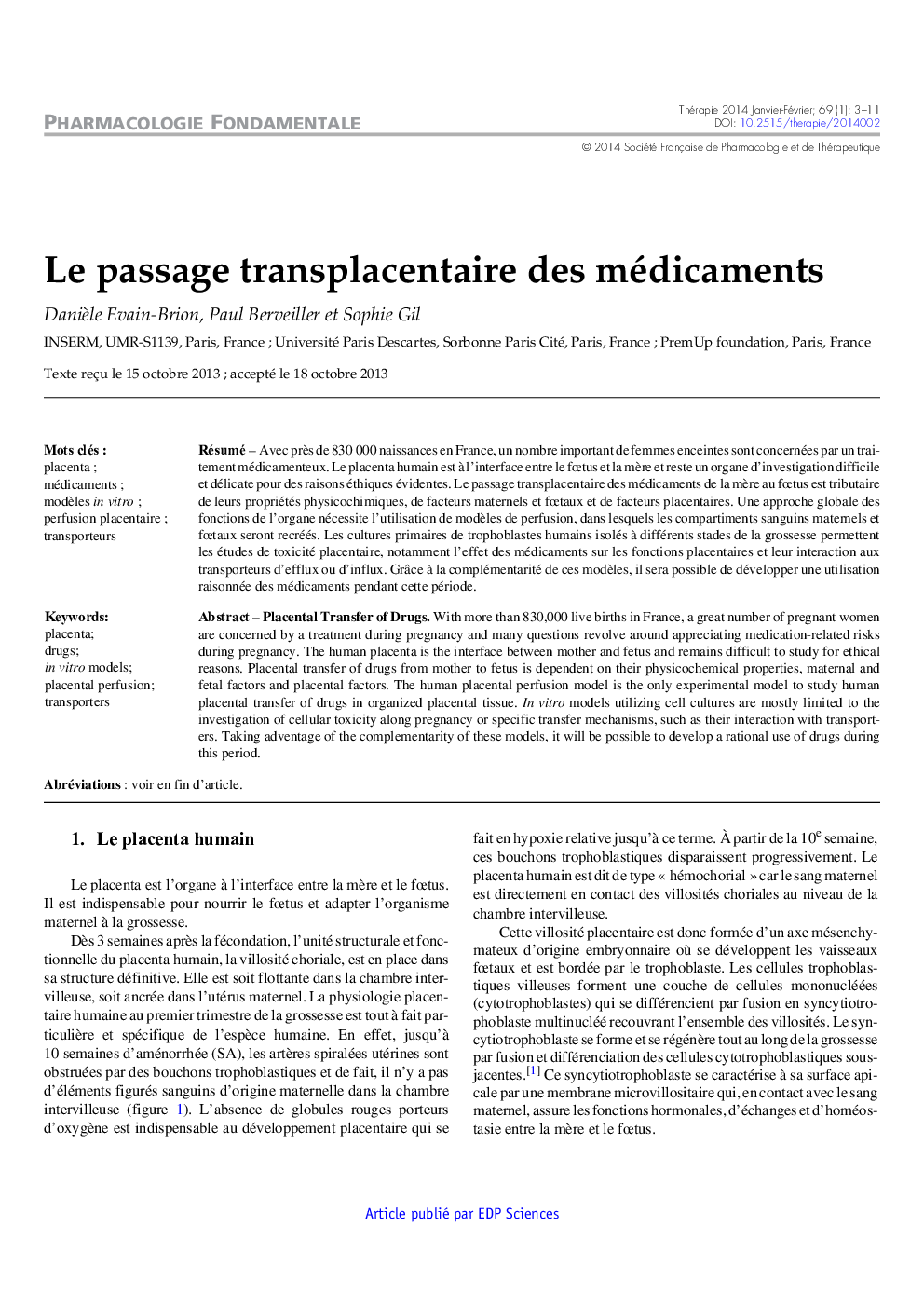| Article ID | Journal | Published Year | Pages | File Type |
|---|---|---|---|---|
| 2578877 | Thérapie | 2014 | 9 Pages |
Abstract
With more than 830,000 live births in France, a great number of pregnant women are concerned by a treatment during pregnancy and many questions revolve around appreciating medication-related risks during pregnancy. The human placenta is the interface between mother and fetus and remains difficult to study for ethical reasons. Placental transfer of drugs from mother to fetus is dependent on their physicochemical properties, maternal and fetal factors and placental factors. The human placental perfusion model is the only experimental model to study human placental transfer of drugs in organized placental tissue. In vitro models utilizing cell cultures are mostly limited to the investigation of cellular toxicity along pregnancy or specific transfer mechanisms, such as their interaction with transporters. Taking adventage of the complementarity of these models, it will be possible to develop a rational use of drugs during this period.
Keywords
MDRAMMLMCP-gpVIHITKABCAGABcrpOCTN2MRPMCTTTFTransporteursOCTN1MonocarboxylatePlacentaTransportersNETMédicamentsDrugsSERTLeucémie myéloïde chroniqueautorisation de mise sur le marchéIn vitro modelsMulti drug resistancePlacental perfusionbreast cancer resistant proteinmultidrug resistance-associated proteins
Related Topics
Health Sciences
Pharmacology, Toxicology and Pharmaceutical Science
Pharmacology, Toxicology and Pharmaceutics (General)
Authors
Danièle Evain-Brion, Paul Berveiller, Sophie Gil,
